
Freda Kreier
Science writing intern, Fall 2021
Freda Kreier was an intern at Science News in the fall of 2021. She holds a bachelor’s degree in molecular biology from Colorado College and a master’s in science communication from the University of California, Santa Cruz.

Trustworthy journalism comes at a price.
Scientists and journalists share a core belief in questioning, observing and verifying to reach the truth. Science News reports on crucial research and discovery across science disciplines. We need your financial support to make it happen – every contribution makes a difference.
All Stories by Freda Kreier
-
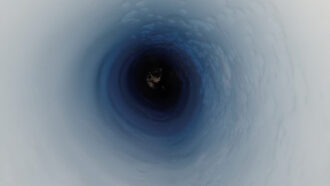 Life
LifeIn one lake deep under Antarctica’s ice, microbes feast on ancient carbon
Microorganisms living in a lake beneath the ice sheet in West Antarctica feed on ocean carbon that was deposited 6,000 years ago.
-
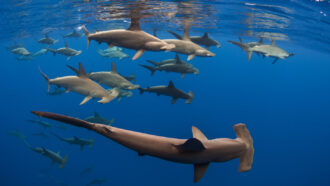 Animals
AnimalsWhy some hammerhead sharks seem to ‘hold their breath’ during dives
Scalloped hammerhead sharks in Hawaii seem to limit the use of their gills during deep dives to prevent losing heat to their surroundings.
-
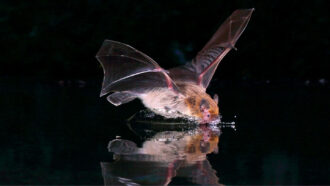 Animals
AnimalsPregnancy may hamper bats’ ability to ‘see’ in the dark
Tiny Kuhl’s pipistrelle bats make fewer calls when pregnant, which may make it more difficult to hunt prey, lab tests hint.
-
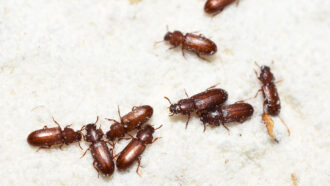 Life
LifeHow some beetles ‘drink’ water using their butts
Red flour beetles, a major agricultural pest, suck water out of the air using special cells in their rear ends, a new study suggests.
-
 Genetics
GeneticsDNA from Beethoven’s hair hints at what killed the composer
Many historians suspect Beethoven died from liver failure. A new analysis shows he had a heightened genetic risk for liver disease, researchers say.
-
 Health & Medicine
Health & MedicineA hormone shot helped drunk mice sober up quickly
Drunk mice injected with the hormone FGF21 woke up and regained their balance faster than inebriated mice that did not receive the shot.
-
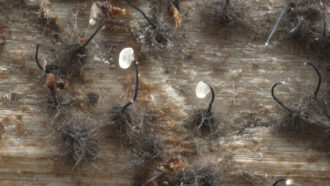 Life
LifeChemical signals from fungi tell bark beetles which trees to infest
As fungi break down defensive chemicals in trees, some byproducts act as signals to bark beetle pests, telling them which trees are most vulnerable.
-
 Life
Life76 percent of well-known insects fall outside protected areas
Protected areas can provide safe havens for insects, but many existing ones fall short, a new study finds.
-
 Life
LifeFossils suggest early primates lived in a once-swampy Arctic
Teeth and jawbones found on Ellesmere Island, Canada, suggest that two early primate species migrated there 52 million years ago.
-
 Earth
EarthIndigenous people may have created the Amazon’s ‘dark earth’ on purpose
Modern Amazonians make nutrient-rich soil from ash, food scraps and burns. The soil strongly resembles ancient dark soils found in the region.
-
 Health & Medicine
Health & MedicineBrain scans suggest the pandemic prematurely aged teens’ brains
A small study suggests that the COVID-19 pandemic may have aged teen brains beyond their years.
-
 Archaeology
ArchaeologyA spider monkey’s remains tell a story of ancient diplomacy in the Americas
A 1,700-year-old spider monkey skeleton unearthed at Teotihuacan in Mexico was likely a diplomatic gift from the Maya.